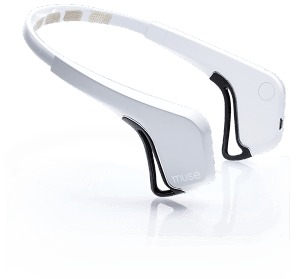
“A company’s odds of success are better the closer they can get to their market,” argues Stephen Hurwitz, a thought leader in the Canadian venture capital industry, recognizing that the proximity to a VC-tech hub can help the success rate of Canadian startups.
A socialized healthcare system, Canada’s market is fragmented by province and type of care – most primary and emergency care is free for residents whereas specialty care, prescription drugs, long-term and in-home care amongst others, are not covered by the Canada Health Act. This system, while making healthcare much more accessible and affordable for citizens, leaves large gaps in coverage and therefore plenty of niches for companies to address current deficiencies with new products and technologies.
Many Canadian entrepreneurs cite a lack of resources in the country’s venture capital industry, which is also younger than its American counterpart. A lack of funding for startups translates into companies addressing immediate needs instead of long-term impending issues, early exits or premature product launches, and there is greater difficulty in attracting a talented workforce.
A report published by MaRS, that compared funding and acquisitions in both countries, indicated that in the past five years, 183 high-tech Canadian companies were acquired compared to 2,300 U.S. companies. Of these 183 companies, almost 70% were acquired by U.S. corporations. Additionally, the average exit valuation for Canadian companies was approximately $100 million, compared to a U.S. valuation of $384 million.
To address these challenges and create a more favorable environment for foreign investment, local governments have pledged hundreds of millions of dollars to spur innovation, not only in the technology sector overall, but in healthcare as well. Two prime examples of this are British Columbia and Ontario – Vancouver’s Interface Health Society runs the IHX Challenge for health tech startups and MaRS hosts the HealthKick conference. Additional incentives include reformation of Section 116, which once made investing in Canadian firms difficult, and a new startup visa, which entices companies to establish themselves within Canadian borders.
Gaining momentum and attracting more social and financial capital has allowed both tech hubs and health startups across the country to flourish. Perhaps due to the segmented markets and the limitations of public health insurance, EHR systems have not been a priority, instead allowing for greater focus on digital health solutions, diagnostics and technology. A significant emerging trend is making care more accessible to citizens, whether through remote monitoring, diagnostic apps or telehealth.
Here is a list of Canada’s top 20 digital health companies to be on the lookout for:
EASTERN CANADA
1. Cogniciti
A growing number of developed countries are now struggling with the current and impending healthcare costs of aging populations. Early detection and treatment can both have a significant effect on reducing public expenditure, as well as reducing patients and families’ costs by delaying in-home caregiving. Based on clinical data, this brain health assessment platform measures various cognitive factors allowing for the early-detection of dementia. The collection of this personal data informs training modules which can be used to improve mental faculties, to slow the effects of aging on the mind and can be used as a coping tool.
Founded: 2010
Founders: Veronika Litinski (COO)
Category: Diagnostics
Funding: Undisclosed
Why you should pay attention – Benefitting from a recently announced commitment of over $100 million dollars to the Canadian Centre for Aging & Brain Health located at Baycrest Health Sciences, Cogniciti will be able to harness the technology and resources often unavailable to such early-stage companies, particularly in such a fragmented field.
2. Eyeread
While developed to catalyze and improve children’s literacy education, Eyeread’s technology tracks eye movements as well the user’s long-term progress. Modules are made consecutively more difficult with the introduction of adaptable algorithms and in-depth analyses of user performance giving caregivers a quick overview of strengths and weaknesses without having to wait one year for an appointment with a child psychologist. Eyeread is expected to hit the market in early 2016.
Founded: Unknown
Founders: Leah Skerry, Julia Rivard & David Sharpe
Category: Diagnostics, Technology & Treatment
Funding: Undisclosed
Why you should pay attention – The Eyeread technology has notable potential to assist in the diagnosis of learning disorders – the platform not only tracks eye movements, but also has voice recording and interactive capabilities. If the API is ever opened to medical software companies, the platform can move well beyond diagnostics to become integrated into treatments and rehabilitation therapies. Additionally, the early detection and treatment of such conditions can mitigate the negative consequences over a person’s lifetime and lower other related expenditures.
3. Figure 1
Think of Figure 1 as a social platform, a crossbreed with elements of Facebook and Pinterest, built for doctors to share images, opine on conditions and discuss cases while keeping patient data protected. Dedicated to creating an expansive library of medical images and conditions, the platform could prove to be an invaluable database for education/ training purposes as well as for practicing physicians as its content is crowdsourced and curated.
Founded: 2012
Founders: Gregory Levey (CEO)
Category: Diagnostics & Patient Care
Funding: $5.7 million
Why you should pay attention – Particularly beneficial for the Canadian health system, Figure 1 has the ability to reduce the need for referrals, thereby minimizing patients’ out-of-pocket costs and time in treatment. In an overburdened system, the image-sharing platform can reduce costs for all stakeholders involved and in the future, if available to patients, may act as a supplementary personal health record for certain chronic conditions. The app already hosts about 1 million image views daily and has a community of over 125,000 professionals all vetted by Doximity.
4. GeneYouIn

A “personalized medicine company”, GeneYouIn has developed a DNA testing service that allows physicians to predict a medication’s efficacy on a specific patient and thereby make a further informed prescribing choice. PillCheck, their decision support system, interprets each individual’s gene variations responsibility for drug absorption and metabolism and recommends medication. Outsourcing such testing can minimize barriers for smaller practices offering such a personalized level of care. Integration into larger provider systems can reduce costs associated with malpractice or improper subscribing.
Founded: 2012
Founders: Ruslan Dorfman
Category: Diagnostics, Technology & Patient Care
Funding: $150 thousand
Why you should pay attention – Not only has the company created various tests to determine patients’ risk for heart disease, cancer and neurological and autoimmune conditions, but they have also reduced the wait time for patient feedback up to 8 weeks. They’ve also created a free consultation service to help patients and their doctors interpret results and come up with an actionable plan to mitigate health risks posed by genetics.
5. InterAxon

Harnessing the power of brainwaves and translating that into digital signals that are recognizable and readable by computers, InterAxon has developed a technology that lends itself to applications that are ripe for integration into healthcare diagnoses and treatment. From meditation to gaming and ADHD assessment, the suite of services that Muse, the company’s wearable head sensor, can assist in extends to the treatment of anxiety and other mental health disorders.
Founded: 2007
Founders: Ariel Garten
Category: Diagnostics & Technology
Funding: $17.2 million
Why you should pay attention – Reviews of Muse, InterAxon’s high tech headband, cite it as a solution for decreasing stress and anxiety – two factors that can significantly affect employee productivity and personal achievements. If encompassed into employee health and wellness programs, or even subsidized from its current price of $299, corporations stand a lot to gain.




